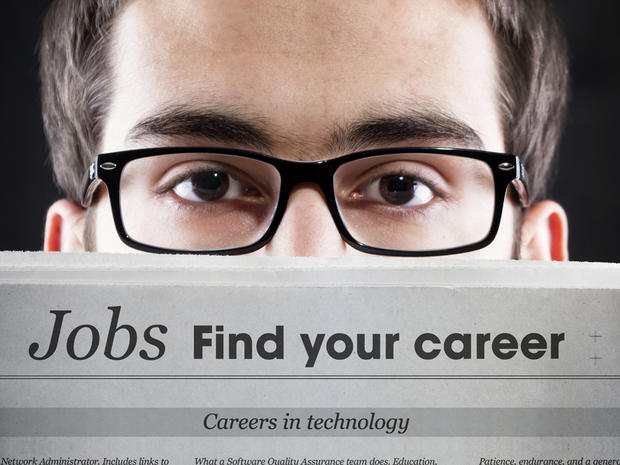Interviewing for a job? It takes almost twice as long now
Thinking about applying for a new job? Be prepared for a lengthy interview process.
That's according to employment site Glassdoor, which analyzed responses from employees who shared their experiences of their interview experiences. The survey found that the average interview process in the U.S. takes 22.9 days, up from only 12.6 days in 2010. While American workers might think that's bad, workers in other countries have it worse, with French and German job candidates reporting an average of 31.9 days and 28.8 days, respectively.
So what's causing the longer hiring times? More levels of screening, from background checks to skills tests, Glassdoor said. The biggest rise in new screenings has come from background checks, with employers checking everything from credit scores to criminal activity. While employers are adding on layers of screening to find the right fit, the extra-long interview process means more money left on the table for both the employer and the job seeker, said Glassdoor chief economist Andrew Chamberlain.
"Every day a person stays out of work is a day they don't earn a paycheck," he noted. "Employers are balancing that off against the upside of getting better-quality hires."
One reason for the longer delays is the changing nature of work in America. On one side, employers are more aware of the costs of making a bad hire. Many are also hiring for jobs that require a high degree of independence and creativity, especially as more routine positions are automated through computers or technology. That's prompting employers to add screens, such as skills tests, to check the interviewees' ability to engage in complicated tasks.
Almost one-quarter of employers used skills tests in 2014, up from 16 percent in 2010. Personality tests were tapped by 18 percent of employers last year, compared with 12 percent in 2010.
Screens "are getting more common, especially background checks and skills tests. Every one of those screens adds time to the hiring process," Chamberlain said. "More and more jobs today require creativity and judgement and are non-routine tasks and are hard to automate. These jobs are harder to screen for," which is prompting employers to add in more tests and hurdles to help identify the best candidate, he noted.
Not all jobs are created equal when it comes to the interview process, however. The study found that government job candidates reported one of the longest hiring process, extending to 60.4 days in the U.S. It's no surprise that job seekers in Washington, D.C. reported the longest wait to get a job offer, at 34.4 days, about twice the time it takes a job candidate to get hired in Miami (18.6 days.)
Even longer processes were reported by U.S. police officers, with the average hiring process requiring 127.6 days, followed by patent examiners, at 87.6 days. Assistant professors reported 58.7 days for their hiring experience.
Those jobs all require a high degree of skill and judgement, which means that employers are likely taking longer to make their decisions and requiring multiple rounds of interviews as well as skills tests.
Lower-skill jobs, not surprisingly, required the shortest interview period. Servers and bartenders required an average of only 5.7 days, while dishwashers reported 6.9 days. Line cooks and waiters needed 7 days before they received a job offer.
The study also found that bigger companies take longer to hire than smaller ones, which may be no surprise given larger firms are likely to have more layers of bureaucracy.
Americans who are currently looking for a job should be prepared for a background check, Chamberlain said. "Get your credit score in order," he said. "If you are searching for a management level or tech job that's complicated, find a way to single out your ability to the company."

